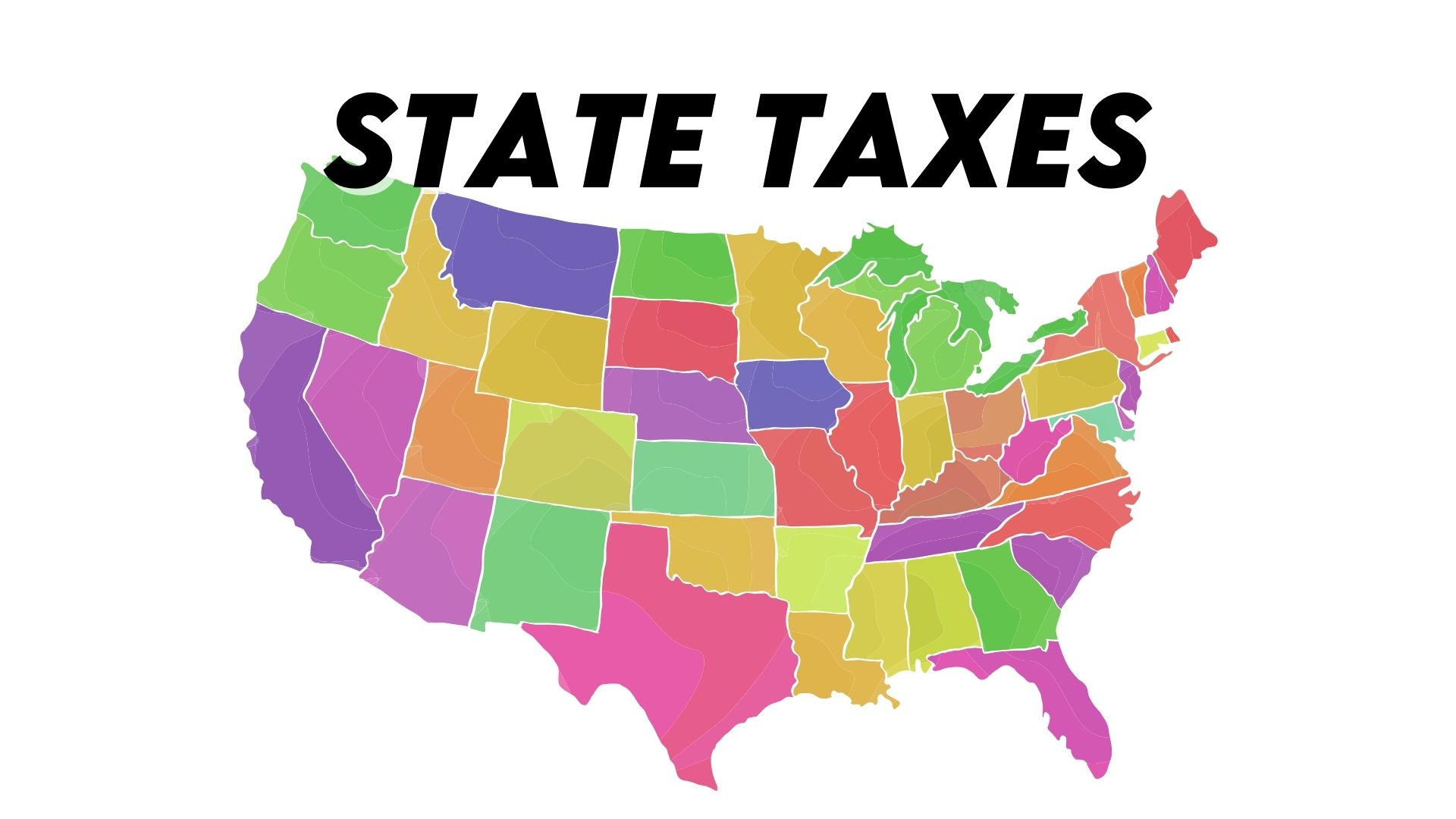
Avoid Tax Surprises While Living Abroad
Living abroad is a dream come true, but don’t forget about the not-so-glamorous side: taxes! Understanding and complying with foreign tax regulations can feel like navigating a maze and neglecting them can lead to unexpected headaches from the IRS or your respective taxing authority. This blog post from Expats Toolkit will equip you with the knowledge to avoid those surprises and navigate taxes like a pro.

Taxes in Your Host Country
Before diving into US taxes, let’s explore what to expect in your new home:
- Seek Professional Help: Consult a local tax lawyer who has experience working with foreigners, to understand your specific tax responsibilities in your host country.
- They can answer questions about:
-
-
- Taxes on income earned in your host country
- Taxes on income from your home country
- Taxes on property and car purchases
- Taxes on pensions
- Tax filing deadlines and processes
-

- Look at immigration/government websites that relate to your country for information on how taxes will affect you as a foreigner.
- Seek out information from expat groups, which can offer valuable resources on foreign tax regulations.
Do US Citizens File Taxes While Abroad?
Yes! As a US citizen, you’re required to file a tax return, regardless of where you live. However, filing requirements depend on your income, filing status, and age.
Although the USA is still expecting you to file taxes while living abroad, you do have a few benefits to help give you a break.

Watch EXPATS TOOLKIT on YouTube
Expats Toolkit has created a YouTube channel offering real experiences of moving and living abroad. I will share details of how to go about deciding to move, transitioning into a new country, and many other helpful tips to make this process go smoothly.
CLICK HERE TO SUBSCRIBE
Tax Relief for US Expats
The US offers several tax benefits for expats:
- Foreign Earned Income Exclusion (FEIE): This tax break allows you to exclude up to $112,000 of your foreign income from US taxes. To qualify:
- You must work for a private company, have lived abroad for a full tax year, or be physically present in a foreign country for at least 330 full days during the 12 months.
- The key is to determine where the source of your income is coming from when filing.
- You will need to use Form 2555 to claim the FEIE when filing.
- Foreign Tax Credit: This allows you to claim credit for taxes you already paid to your host country.
- To qualify for the tax that needs to be imposed on you, you must have actually paid it or accrued it, and it must be a form of income tax.
- It is important to note that you can’t apply the FEIE and the Foreign Tax Credit to the same income.
- Foreign Tax Treaties: These agreements between the US and other countries can help eliminate double taxation. Each treaty is unique, but all treaties serve the same purpose: to eliminate double taxation. For a full list of treaty countries, visit the IRS website.
- One limitation you may discover is that it may contain a clause called the Savings Clause, which prevents US citizens from applying the treaty to their tax returns, with language allowing the US to tax its citizens as if the treaty did not exist.

PSST: HERE ARE SOME OTHER YOUTUBE POSTS YOU MAY WANT TO CHECK OUT :
Should I Move Abroad?
Choosing the Perfect Country to Live Abroad
Secrets No One Tells You About Visa and Residency Requirements
Identifying Cultural Differences Before Moving Abroad
What is Expats Toolkit?
Important US Tax Filings for Expats
Although you have some tax exemptions, you must be careful to recognize a few key elements in banking and being a part of a business or organization abroad.
- Foreign Bank Account Report (FBAR): Report any foreign bank accounts exceeding $10,000 in a year.
- These accounts include savings accounts, checking accounts, term deposits, brokerage accounts, mutual funds, and insurance policies with cash value.
- Foreign Account Tax Compliance Act (FATCA): If your foreign assets exceed a certain threshold, you may have to file Form 8938.
- A single person living abroad has a threshold of $200,000 in foreign assets held at the end of the year or $300,000 at any point during the year.
- Married couples: it is $400,000 at the end of the year or $600,000 at any point during the year.
- The filing is done on Form 8938, which is submitted with the annual tax return.

- State Taxes: You may need to file state taxes depending on your “ties” to a particular state.
- “Ties” can mean living in the state for part of the year, if you maintain a home in that state, if you maintain a state driver’s license, or if you maintain your voter registration in the state.
- You will need to find out from your state what “ties” you to them and whether or not you have to pay state income tax.
- Foreign Real Estate: You don’t have to report any foreign real estate you own under FATCA unless the real estate is held through a foreign corporation, partnership, trust, or other entity.
- If you sell any real estate during a reporting period, then you’ll need to include that income when assessing your taxable income for your tax return.

Can the IRS Track Foreign Income?
Yes, the IRS has mechanisms to track foreign income and financial accounts.
Foreign banks and financial institutions are required to report accounts held by U.S. citizens to the IRS under the Foreign Account Tax Compliance Act (FATCA). Additionally, tax treaties and international agreements allow the IRS to exchange information with tax authorities in other countries.
What Tax Form does a U.S. Citizen Living Abroad File?
U.S. citizens living abroad typically use Form 1040, the same form used by taxpayers in the United States. However, some additional forms and schedules may apply, such as Form 2555 (for claiming the Foreign Earned Income Exclusion) and Form 1116 (for claiming the Foreign Tax Credit).
The specific forms you need to file depend on your financial situation and the tax benefits you’re eligible for.

Paying Taxes on Money Earned Abroad
Living abroad doesn’t exempt U.S. citizens from their tax obligations to the U.S. government. Even if you generate income abroad in your host country, you must file income tax claim with those funds on your application.
How to Declare Income From Abroad?
To declare income earned abroad, you must report it on your U.S. tax return. This includes income from employment, self-employment, investments, rental properties, and any other sources. You’ll need to provide detailed information about your foreign income, including the source, amount, and currency.
Complexities for Business Owners
If you own a foreign company, the IRS might require additional reporting depending on the company structure (e.g., Passive Foreign Investment Companies (PFICs) or Controlled Foreign Corporations (CFCs).
- Passive Foreign Investment Companies (PFICs): A foreign company that generates 75% of its gross income from passive investments or 50% of its assets, on average, are from passive sources. Passive income is income that the company does not provide direct services for, such as from dividends.
- Controlled Foreign Corporations (CFCs): If you’re a shareholder or an officer or director in a foreign corporation that is 50% or more owned or controlled by US shareholders, then you may need to file a Form 5471. If you operate a foreign branch or own a foreign company, you should consider using Form 8832 to have the company treated as a disregarded entity, and then use Form 8858 when reporting your company to the IRS.

Expat Tax Filing Deadlines
- Tax Payment: April 15th (same as everyone else)
- Tax Return Filing: If don’t owe any money to the IRS, you have until June 17th (extension available until October 15th)
- FBAR Filing: October 15th

Avoid Penalties and Get Your Refund Faster
- File on time! Late filing can lead to penalties and interest.
- Consider using a service like Wise for convenient international money transfers and receiving your tax refund.

Feeling Overwhelmed? Here’s Help!
- Tax Professionals: Hire an expat tax specialist to guide you through the process. We recommend MyExpatTaxes.com.
- Research: Identify what’s considered “earned income” according to US tax laws.
- Double Taxation Treaties: Check the IRS website (search “Tax Treaties”) to see if the US has a treaty with your host country to avoid double taxation.
Remember, knowledge is power. By understanding your tax obligations, you can avoid unnecessary stress and navigate your expat journey with confidence. Subscribe to Expats Toolkit for more helpful tips, and happy exploring!
P.S. This blog post is for informational purposes only and should not be considered tax advice. Always consult with a qualified tax professional for personalized guidance.
If you are looking for more information about moving and living abroad, then visit Expats Toolkit.
If you want to read more, follow me on Facebook or Instagram.
If you are looking to travel and need some tips on places to visit, then follow me, Traveling Lens Photography, on Facebook, Instagram, or Pinterest.
Happy Adventures!



